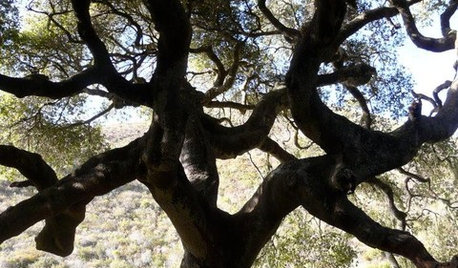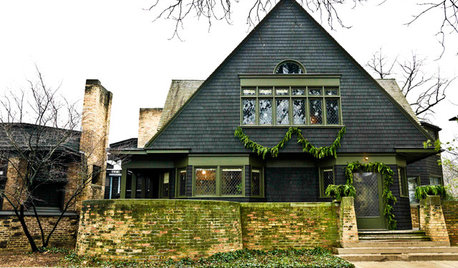controlled hybridization of oaks
joeschmoe80
11 years ago
Related Stories

CALIFORNIA NATIVE PLANTSGreat Design Plant: Coast Live Oak
The stuff of legends and memories, this California tree is one to build a whole landscape around
Full Story
KITCHEN OF THE WEEKKitchen of the Week: Goodbye, Honey Oak — Hello, Minty Green
After more than 30 years, the Kloesels revamped their space to reflect their rural country town and Victorian-style home
Full Story
KITCHEN DESIGNTake a Seat at the New Kitchen-Table Island
Hybrid kitchen islands swap storage for a table-like look and more seating
Full Story
KITCHEN DESIGNKitchen of the Week: Industrial Design’s Softer Side
Dark gray cabinets and stainless steel mix with warm oak accents in a bright, family-friendly London kitchen
Full Story
MOST POPULARExperience the Holidays at Frank Lloyd Wright's Home and Studio
Handmade decorations, greenery and gifts show how the famed architect and his family celebrated Christmas in their Oak Park home
Full Story
REMODELING GUIDESYour Floor: An Introduction to Solid-Plank Wood Floors
Get the Pros and Cons of Oak, Ash, Pine, Maple and Solid Bamboo
Full Story
ECLECTIC HOMESHouzz Tour: Industrial Chic in the Heart of London
Reclaimed oak, black steel, a neutral palette and a touch of marble evoke subdued luxury in a 19th-century building on the Strand
Full Story
FALL GARDENING8 Must-Have Tools for Fall Backyard Prep
Autumn outdoor work feels overwhelming, but these handy tools can keep it under control
Full Story
CONCRETEWhy Concrete Wants to Crack
We look at the reasons concrete has a tendency to crack — and what you can do to help control it
Full Story
REMODELING GUIDES8 Remodeling Costs That Might Surprise You
Plan for these potential budget busters to keep a remodeling tab from escalating out of control
Full StoryMore Discussions







greenthumbzdude
lucky_p
poaky1
strobiculate
greenthumbzdude
poaky1
joeschmoe80Original Author
poaky1
greenthumbzdude
lou_spicewood_tx
poaky1
che_perry